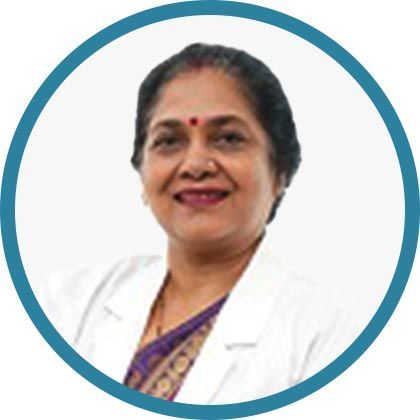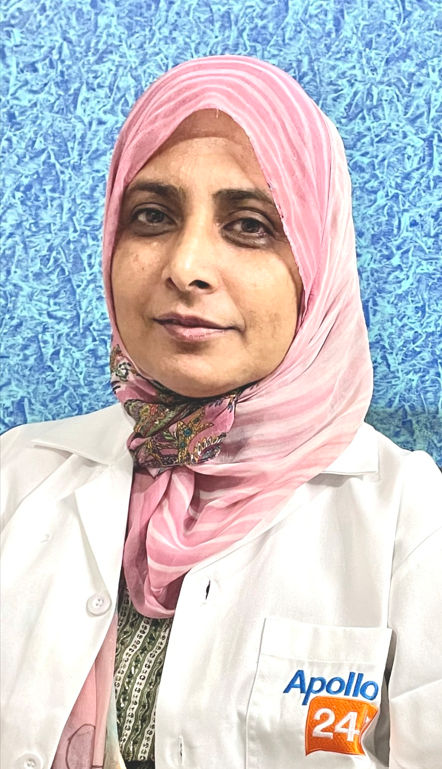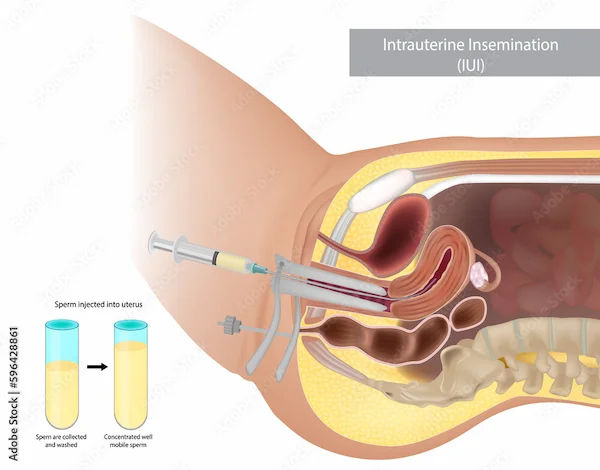Navigating a High-Risk Pregnancy: Your Guide to Care and Confidence
Navigate a high-risk pregnancy with confidence. Learn about specialised care, monitoring, lifestyle adjustments, emotional support, and expert advice to safeguard your and your baby’s health.

Written by Dr. Dhankecha Mayank Dineshbhai
Reviewed by Dr. Md Yusuf Shareef MBBS
Last updated on 13th Jan, 2026

Introduction
Hearing the words "high-risk pregnancy" can be overwhelming. It’s a term that brings a wave of anxiety, uncertainty, and a million questions. But it's crucial to remember that a high-risk designation is not a prediction of a negative outcome; rather, it's a proactive plan for specialised care. This label means you and your baby will receive extra attention and monitoring to ensure the best possible health for both of you. The goal is to identify potential complications early and manage them effectively. This guide is designed to empower you with knowledge, practical steps, and emotional support. We will walk you through what it means to deal with a high-risk pregnancy, from understanding the causes and assembling your medical team to making essential lifestyle adjustments and safeguarding your mental well-being. Consider this your roadmap to navigating this unique journey with confidence and clarity, turning fear into informed action.
What Exactly is a High-Risk Pregnancy?
A high-risk pregnancy is one where there is an increased chance of complications for the pregnant person, the baby, or both. These complications could arise before, during, or after delivery. This classification allows healthcare providers to tailor a care plan that addresses specific risks, often involving more frequent check-ups and specialised testing. It's a precautionary measure, not a verdict.
Common Conditions That Lead to a High-Risk Classification
Several conditions can lead to a pregnancy being deemed high-risk. These include preeclampsia (a serious blood pressure disorder), gestational diabetes, problems with the placenta like placenta previa or placental abruption, and carrying multiples (twins, triplets, etc.). Other factors are a history of preterm birth, or fetal conditions detected during ultrasound scans.
Key Risk Factors: Are You More Likely to Have a High-Risk Pregnancy?
Risk factors are often divided into categories:
- Pre-existing Maternal Health Conditions: Such as diabetes, high blood pressure, autoimmune diseases, thyroid disorders, or obesity.
- Pregnancy-Related Issues: These develop during pregnancy, like the conditions mentioned above.
- Age: Being under 17 or over 35 at the time of delivery increases certain risks.
Lifestyle Factors: Smoking, alcohol use, and illicit drug use significantly elevate pregnancy risks.
Consult a Specialist for the best advice
The First Steps: What to Do After a High-Risk Diagnosis
The initial shock of a diagnosis can be paralysing. The first step is to take a deep breath and shift your mindset from worry to organisation. Knowledge is your greatest ally.
Assembling Your Expert Healthcare Team
You will likely need a team beyond a standard obstetrician. A maternal-fetal medicine (MFM) specialist, also known as a perinatologist, is an obstetrician with advanced training in managing high-risk pregnancies. Your team might also include an endocrinologist (for diabetes), a cardiologist (for heart issues), and a neonatologist (a baby doctor who can advise on care after birth). If you receive a high-risk diagnosis, consulting a specialist team, potentially including an MFM from a network like Apollo24|7, can provide the focused care you need.
Asking the Right Questions: Your First Appointment Checklist
Come to your appointments prepared. This helps you feel in control. Essential questions to ask include:
- What is the specific reason for my high-risk classification?
- What are the potential risks to me and my baby?
- How will my prenatal care plan change (e.g., more frequent visits, specific tests)?
- What warning signs should I look for at home?
- Are there any activity or dietary restrictions I need to follow immediately?
Your Medical Management Plan: Monitoring and Treatment
A structured medical plan is the cornerstone of managing a high-risk pregnancy. This plan is highly individualised based on your specific condition.
The Role of Increased Prenatal Monitoring
You will have more frequent appointments. This may include additional ultrasounds to track fetal growth, non-stress tests to check the baby's heart rate, and biophysical profiles which combine an ultrasound with a non-stress test. Apollo24|7 offers convenient home collection for routine blood tests like glucose monitoring, which can be a vital part of your management plan for conditions like gestational diabetes.
Potential Medications and Interventions
Depending on the condition, you might be prescribed medications. These could range from low-dose aspirin to prevent preeclampsia to injections to manage blood clotting disorders. In some cases, a procedure called a cerclage (a stitch in the cervix) might be needed to prevent preterm birth.
Lifestyle Adjustments for a Healthier Pregnancy
Your daily choices play a critical role in supporting a healthy pregnancy outcome.
Nutrition and Diet: Eating for Two (Safely)
Focus on a balanced diet rich in folate, iron, calcium, and protein. If you have gestational diabetes, you'll work with a nutritionist to manage carbohydrate intake. Staying hydrated is also essential.
Understanding Activity Modifications: Bed Rest vs. Gentle Movement
While "bed rest" is less commonly prescribed today than in the past, your doctor may recommend activity restrictions. This doesn't always mean strict bed confinement; it might simply mean avoiding heavy lifting, standing for long periods, or strenuous exercise. Always follow your doctor's specific advice.
The Emotional Journey: Coping with Stress and Anxiety
The emotional toll of a high-risk pregnancy is significant. Acknowledging and addressing your mental health is as important as managing your physical health.
Building Your Support System: Partners, Family, and Friends
Communicate openly with your partner about your fears and needs. Let family and friends know how they can help, whether it's with meals, errands, or just a listening ear. Don't be afraid to be specific about what you need.
When to Seek Professional Mental Health Support
It's normal to feel anxious, but if these feelings become overwhelming, persistent, or lead to depression, seek help. If feelings of anxiety or sadness are impacting your daily life, consider speaking with a therapist. Many platforms, including Apollo24|7, offer access to mental health professionals online, making it easier to get support from home.
Planning for a Safe Delivery and Beyond
Your birth plan may look different, and that's okay. The primary goal is a safe delivery for you and your baby.
Discussing Your Birth Plan with Your Doctor
Talk to your doctor about the likelihood of a vaginal birth versus a cesarean section (C-section). The location of your delivery may also change; you might need to deliver at a hospital with an advanced Level III NICU. Discuss pain management options well in advance.
Conclusion: Empowering Yourself Through Knowledge and Care
A high-risk pregnancy journey is undeniably challenging, but it is a journey you do not have to walk alone. By understanding your diagnosis, building a trusted medical team, adhering to your care plan, and prioritising your emotional well-being, you are taking powerful, proactive steps. Remember, the "high-risk" label is a tool that enables you and your doctors to be extra vigilant, turning potential challenges into manageable situations. Empower yourself with knowledge, lean on your support system, and celebrate each milestone. You are stronger than you know, and this specialised care is designed to give you and your baby the best possible start. If you have any concerns at any point, never hesitate to reach out to your healthcare provider for guidance and reassurance.
Consult a Specialist for the best advice
Consult a Specialist for the best advice
Kavitha V Reddy
Obstetrician and Gynaecologist
20 Years • MBBS, DGO
Bengaluru
Apollo Cradle and Childrens Hospital, Bengaluru

Dr. Tanvi Gaba
Obstetrician and Gynaecologist
9 Years • MBBS, DGO
New Delhi
AAKASH MEDSQUARE, New Delhi

Dr. Ritika Khurana
Obstetrician and Gynaecologist
16 Years • MBBS, DGO(GYNAECOLOGY AND OBSTETRICS)
Pune
Dr Rupali and Dr Ritika, Pune

Dr. Veena Shinde
Obstetrician and Gynaecologist
34 Years • MBBS , Diploma (Gynecology & Obestritics), MS (Obstetrics & Gynecology)
Mumbai
Shinde Medicare Hospital Pvt Ltd, Mumbai

Dr Homeira Nishat
Obstetrician and Gynaecologist
34 Years • MBBS, Diploma in Obstetrics & Gynaecology
Bengaluru
Cure Hospital and Clinic, Bengaluru
Consult a Specialist for the best advice
Kavitha V Reddy
Obstetrician and Gynaecologist
20 Years • MBBS, DGO
Bengaluru
Apollo Cradle and Childrens Hospital, Bengaluru

Dr. Tanvi Gaba
Obstetrician and Gynaecologist
9 Years • MBBS, DGO
New Delhi
AAKASH MEDSQUARE, New Delhi

Dr. Ritika Khurana
Obstetrician and Gynaecologist
16 Years • MBBS, DGO(GYNAECOLOGY AND OBSTETRICS)
Pune
Dr Rupali and Dr Ritika, Pune

Dr. Veena Shinde
Obstetrician and Gynaecologist
34 Years • MBBS , Diploma (Gynecology & Obestritics), MS (Obstetrics & Gynecology)
Mumbai
Shinde Medicare Hospital Pvt Ltd, Mumbai

Dr Homeira Nishat
Obstetrician and Gynaecologist
34 Years • MBBS, Diploma in Obstetrics & Gynaecology
Bengaluru
Cure Hospital and Clinic, Bengaluru
More articles from pregnancy
Frequently Asked Questions
Can a high-risk pregnancy still be healthy?
Absolutely. The term 'healthy pregnancy' and 'high-risk pregnancy' are not mutually exclusive. A high-risk pregnancy can result in a perfectly healthy outcome for both mother and baby thanks to the advanced monitoring and care provided.
What are the first signs of a potential problem I should watch for?
Always contact your doctor immediately if you experience: severe headaches, vision changes, intense abdominal pain, vaginal bleeding or fluid leakage, a significant decrease in fetal movement, or contractions before 37 weeks.
How can I reduce the risk of complications in a high-risk pregnancy?
The best approach is to follow your medical team's advice meticulously. Attend all appointments, take prescribed medications, follow dietary and activity guidelines, avoid harmful substances, and report any concerning symptoms promptly.
Is it safe to travel during a high-risk pregnancy?
This depends entirely on your specific condition. You must discuss any travel plans with your doctor. They can advise you on the safety and any precautions you need to take based on your gestation and risk factors.
Will all my future pregnancies be high-risk?
Not necessarily. It depends on the reason for the high-risk classification. For example, a pregnancy that was high-risk due to gestational diabetes may not be high-risk in the future if the condition resolves. However, a chronic condition like hypertension will always require special attention. Discuss your individual case with your doctor.




